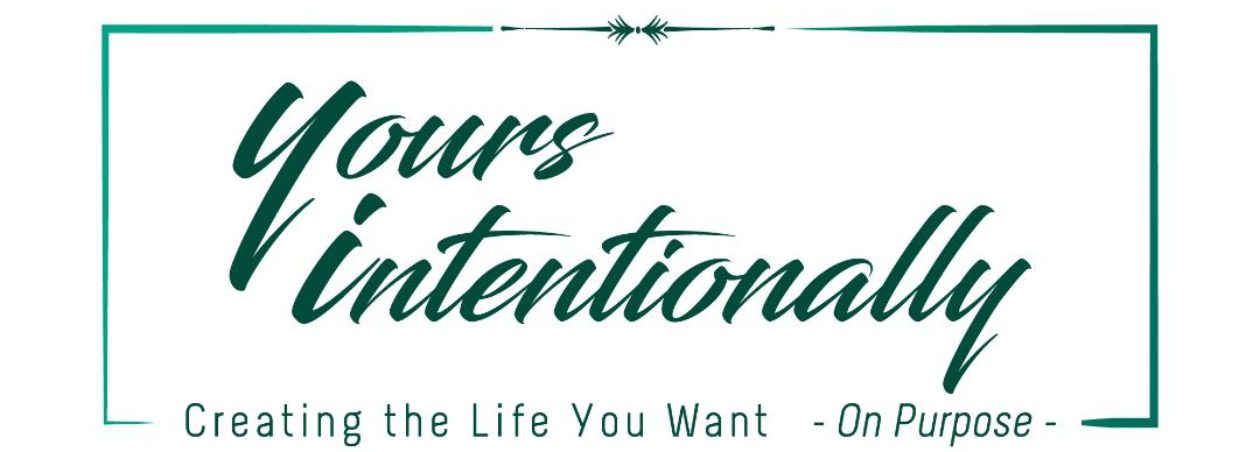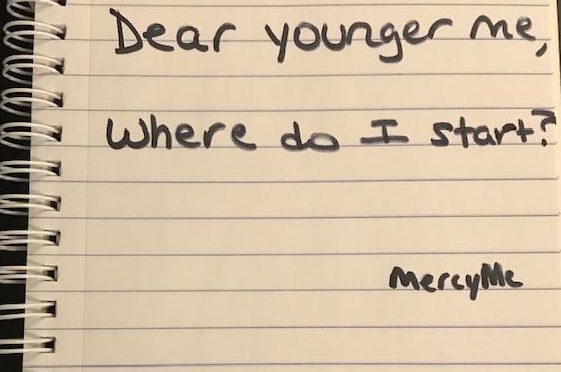Have you ever considered what you’d say if you had the ability to write a letter to your younger self? It’s an ‘If I’d known then what I know now’ concept that’s interesting to ponder.
It crossed my mind today while driving in my car. On the radio, I heard the song: Dear Younger Me by MercyMe. In it, the singer imagines writing a letter to himself when he was younger. He dreams of giving himself an advantage in life by teaching valuable lessons without having to experience any of the pain he went through. He envisions sharing wisdom to help him avoid mistakes and keep him from making the wrong choices.
It made me pause to consider what I would tell my younger self if given the opportunity. Surprisingly, in just a few short minutes, the answer was crystal clear to me. It centered around the idea of perfection.
The lie I believed & the truth I found
I could have saved myself a lot of pain if I had recognized much earlier in life that no one is perfect, and therefore, I don’t have to be perfect either.
You see, I grew up believing a lie. The lie was:
My value and self-worth = My performance + The opinion of others
When in reality, the truth is:
My value and self-worth comes from God. He knows I’m not perfect and loves me anyway. He made us all human and none of us are perfect.
Oh, the pain I could have saved myself if I had recognized this sooner. Oh, the freedom that would have come with not caring so much what others thought of me. If only I’d had the ability to try things without the fear of failing or even the fear of simply not doing as well as others.
I was in my mid-30s before I truly understood God’s love for me in this way and grasped that my value comes from Him alone.
When I was seeing a counselor in 2017, I worked through a book called Conquering

Codependency – A Christ-Centered 12-Step Process by Pat Springle. It was this book that helped me realize the lie I was believing about performance-based value. It taught me to replace the lie with the truth of God’s love for me.
If only, but what’s done is done.
As I drove on, I snapped out of my reflective daydream. “If only…” I thought. “But I can’t change the past and write a letter to myself. What’s done is done.”
Then another truth hit me.
I don’t have the power to change the past, but I do have the power to influence the future.
At that moment, I thought of my two daughters. I am a huge influence in their lives. If I want to help others avoid making the same mistakes I made, I can absolutely help them!
In fact, if you’ve read my blog post: Want to Build Confidence in Kids? Try This! then you know about the Mom Says jar we implemented at our house on Jan. 1, 2019. I’ve included phrases in the jar such as: “Mom says… It’s okay to make mistakes.” “Mom says… No one is perfect.” “Mom says…Nothing will ever change God’s love for you.”
My girls pull one phrase from the Mom Says jar each morning, and we discuss what it means on the way to school. It’s my way of infusing positive, loving, instructional messages into their daily lives. My hope is when they are faced with hard choices or in a sticky situation, they’ll hear a little voice in their heads clearly stating what mom says, and it will help guide them.
Actions speak louder than words
Only one problem. As I drove on, practically patting myself on the back for the intentional way I’m trying to teach these lessons and infuse wisdom into their lives, I realized something. I’m giving the message, but not living the message.
I started thinking about my responses when they make mistakes. Do I make them feel as though making mistakes is okay? What about when we’re out in public and I notice their hair isn’t lying flat. Do I say, “Messy hair, don’t care,” or do I quickly try to smooth it flat?
This is something I’ve struggled with since they were toddlers. I always felt their imperfect hair or clothes would be a negative reflection on me and my parenting, so I was quick to fix and correct.
We all know actions speak louder than words. My girls are likely learning that while mom says it’s okay to not be perfect, in reality, mom expects me to be perfect. Ugh.
Progress; not perfection.
I started to beat myself up for how I’m failing as a parent to teach this oh-so-critical lesson I want my girls to learn. But then I caught myself and said, “Wait, I’m not perfect, and that’s okay.”
In this life, it’s really more about progress than perfection. Perfection is unattainable; we’re much better off recognizing where we need work, vowing to do better, and striving to improve. Progress; not perfection.
Finally, I could breathe easier. I can absolutely teach my daughters where their value comes from. I can work to improve how I respond when I notice something less than perfect, or when they make a mistake, or fail at something.
Maybe when my actions are more in alignment with my words, my girls can benefit from this truth and not believe the lie I did. If I can save them from performance-based value and give them the freedom and ability to try new things without fear of failure or without the judgment of others, that would be something! It’s certainly worth trying.
Can you relate to this? What lies did you believe growing up? Have you discovered the truth? What are you trying to teach your kids in words and actions so they don’t repeat mistakes you made? As always, I’d love to hear from you.
Yours intentionally, Amanda


This is something I needed to hear, today. Perhaps we can both work on our perfectionist habits together?